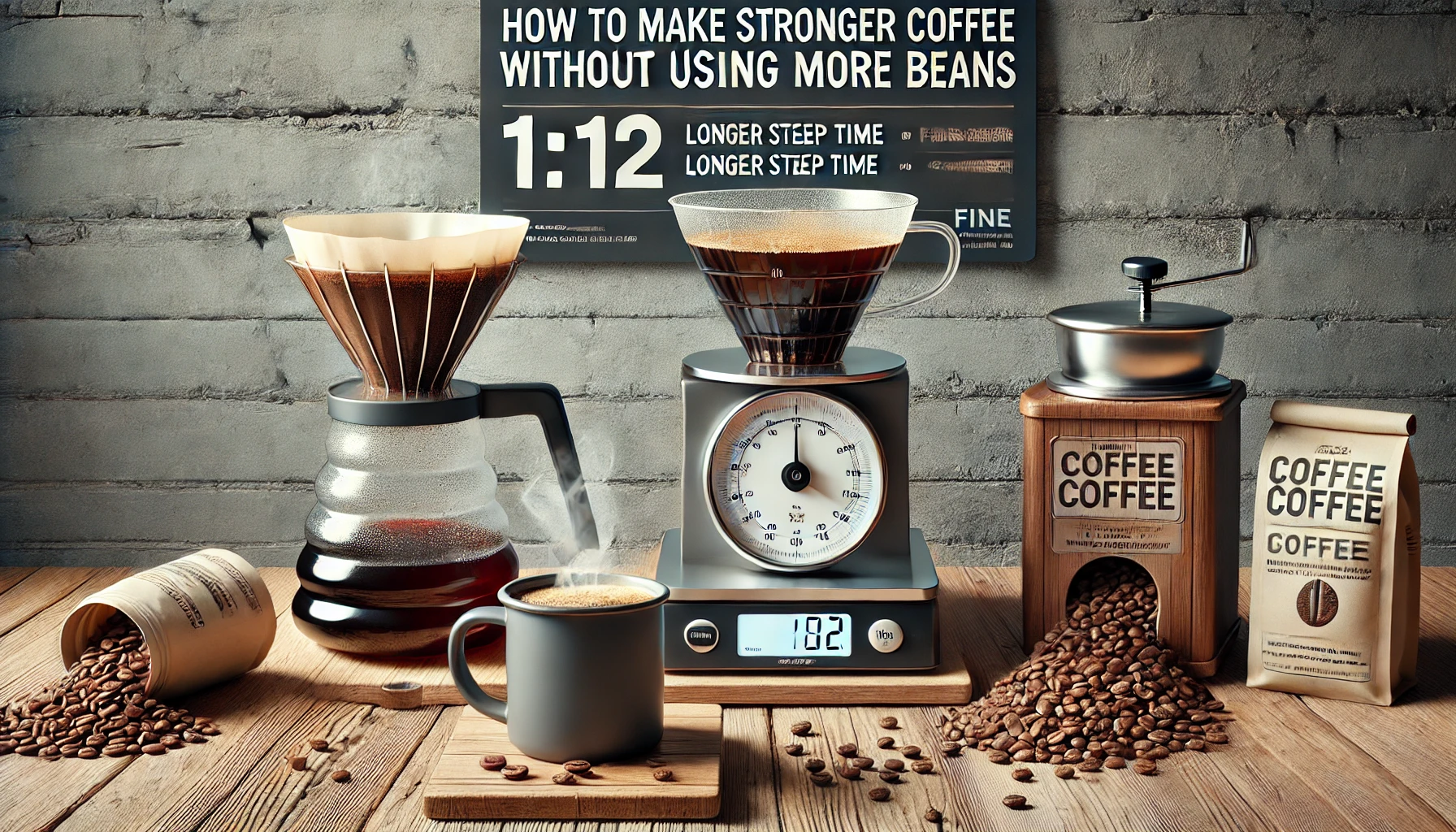Want a bolder, more intense cup of coffee without simply dumping in more grounds? Good news—you can achieve stronger coffee through better technique, not just quantity. Whether you’re craving a morning jolt or prefer deeper flavor, there are smart ways to enhance strength without wasting beans.
In this article, you’ll learn how to boost your brew’s strength and richness by adjusting grind size, brew time, water ratio, and method.
What Does “Stronger Coffee” Really Mean?
“Strong” can refer to two things:
- Caffeine strength – the amount of caffeine in the cup
- Flavor strength – how bold, rich, or intense the coffee tastes
Most people want both, but in balance. A strong coffee should still taste good—not bitter or overpowering.
Let’s explore how to get there.
1. Use a Finer Grind Size
The finer the grind, the more surface area is exposed to water, which improves extraction.
- For French press, move slightly finer (but not too fine)
- For pour-over or drip, aim for medium-fine
- For espresso, use a fine grind with proper tamping
Be careful: grinding too fine can cause over-extraction and bitterness. Adjust gradually and test results.
2. Reduce the Coffee-to-Water Ratio
Want a stronger cup? Try using less water per gram of coffee, rather than more coffee.
Standard ratio: 1:16 (1g coffee to 16g water)
For a stronger brew: 1:14 or 1:12
Example:
- Standard: 20g coffee to 320g water
- Stronger: 20g coffee to 280g water
This keeps caffeine and flavor concentration higher—without changing your dose.
3. Increase Brew Time (Slightly)
Longer contact time between water and coffee allows for more extraction.
Tips:
- For French press: let it steep 1–2 minutes longer (5–6 mins total)
- For pour-over: pour more slowly to extend brew to ~3:30–4 mins
- For AeroPress: let it steep for 1:30+ before pressing
Don’t overdo it—too long and you risk bitterness.
4. Choose a More Efficient Brew Method
Some methods naturally produce stronger coffee, even with standard amounts:
- Moka pot: pressure-extracted and espresso-like
- AeroPress (inverted method): compact and concentrated
- Espresso: pure intensity in a small shot
- Cold brew concentrate: low acid, high caffeine (brew stronger, then dilute to taste)
French press and pour-over can also be tweaked, but pressure-based methods offer maximum strength per gram.
5. Pre-Infuse or Bloom the Coffee
Blooming coffee helps release trapped gases and allows even extraction.
How:
- Pour a small amount of hot water over the grounds
- Let sit for 30–45 seconds before full brewing
- Watch the grounds “bloom” and bubble up
This creates more uniform extraction, enhancing both flavor and strength.
6. Use Hotter Water (Within Range)
Water temperature matters. Higher temps extract more compounds—up to a point.
Ideal range: 90–96°C (195–205°F)
- Too cool? Weak and sour
- Too hot? Bitter and overdone
- Use a thermometer or boil and let cool for 30 seconds
Don’t brew with lukewarm water—it leaves strength behind.
7. Choose a Bold Roast
While strength isn’t determined by roast level alone, darker roasts tend to taste stronger due to bold, smoky, and chocolatey notes.
- Light roast: Higher acidity, more subtle
- Medium roast: Balanced and smooth
- Dark roast: Rich, earthy, often perceived as stronger
Note: Light roasts often contain slightly more caffeine, but dark roasts feel stronger in taste.
8. Optimize Your Brew Ratio Based on Taste
Not everyone likes the same strength. Use these ratio guidelines:
| Strength Level | Brew Ratio (Coffee:Water) |
|---|---|
| Mild | 1:17 |
| Standard | 1:15–1:16 |
| Strong | 1:13–1:14 |
| Extra Strong | 1:11–1:12 |
Start with 1:15 and adjust by small increments to find your sweet spot.
Final Thoughts: More Flavor, Not More Waste
You don’t need to double your beans to double your satisfaction. By fine-tuning your brew method, grind size, and ratios, you can create stronger, richer coffee without using more grounds.
Remember, strength should enhance your experience, not overpower it. With a little experimenting, you’ll find the perfect balance between bold and beautiful.
